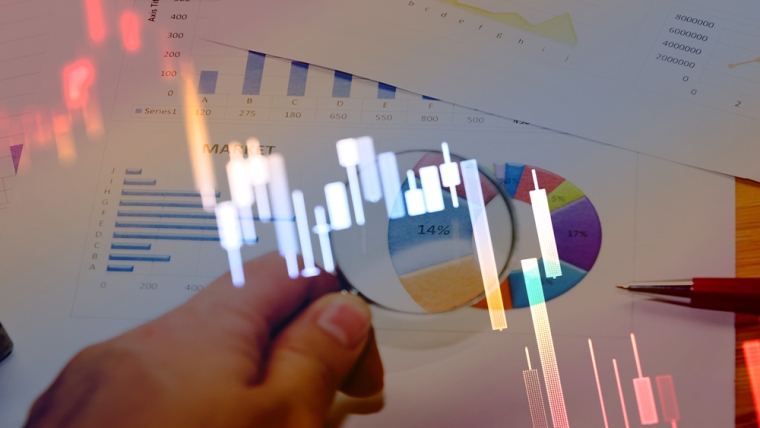
Market volatility continues, with a reversal of recent trends despite no obvious trigger. Global equities have rebounded strongly, commodity prices show widespread falls, global rates are significantly higher and European currencies (ex CHF) are the strongest performers by far. Amidst improved risk appetite, safe-haven currencies are weaker, seeing the NZD recover to 0.6850 and the AUD up to 0.7320.
On seeing the significant reversal in asset prices compared to recent days, I immediately searched for the reason, expecting to see good news on the war in Ukraine. Alas, Bloomberg’s most read story in the past eight hours is “Putin’s endgame starts to look like reducing Ukraine to rubble”, the WSJ’s main headline is “Russian airstrike hits maternity hospital” while the FT reads “Ukraine warns on impact of Russia’s invasion on nuclear sites”.
So there is no good news on the war front and Russia’s bombardment of Ukraine relentlessly continues, and progress in taking over major cities remains slower than the Kremlin would like. The lift in risk sentiment can therefore mainly be put down to market volatility, with traders and investors seeing some opportunities after the significant market dislocation.
On fundamentals, one might see improved sentiment reflecting expectations of a positive outcome from the EU leaders summit that begins today. Yesterday we reported expectations of a fiscal plan to jointly issue bonds on a potentially massive scale to finance energy and defence spending that will help reduce the dependence on Russian energy. There is also some anticipation of the ECB meeting tonight, where plans to withdraw stimulus might be pushed back.
European equities were stronger from the open and made further gains as the day progresses, with the Euro Stoxx 600 up a massive 4.7%. The biggest gainers were those that have fallen the most since Russia’s invasion of Ukraine, with consumer discretionary stocks and financials leading the way. The S&P500 opened on a strong note and is currently up 2.8%, with the Nasdaq up over 3½%.
As with the Euro Stoxx index, the only sector down is Energy, with Brent crude down 12% to USD112 per barrel, the day after the US and UK announced a ban on Russian oil imports, suggesting that the high price already captured the market’s concern on supply. Overnight oil prices were already down significantly, but fell further after the UAE said that it favoured production increases and would be encouraging OPEC to consider higher production levels.
The shift in market sentiment has seen higher global rates, with Germany’s 10-year rate up 10bps to 0.22%, extending its gain this week so far to 29bps. The US 10-year rate is up 6bps to 1.91%, decomposed by a 10bps fall in the break-even inflation rate on lower oil prices and a 16bps lift in the real rate. The data calendar has remained light, but US job openings were 11.3m in January, down from a (revised higher) record high of 11.4 in December, suggesting that the labour market remained strong despite the disruptions from Omicron’s spread.
The euro has recovered strongly, up 1.7% since the NZ close to 1.1090. Safe-havens have underperformed, with the USD, JPY and CHF at the bottom of the leaderboard. Despite the widespread fall in commodity prices, the NZD and AUD have made gains of 0.5-0.6% overnight to 0.6845 and 0.7329 respectively. NZD/EUR is down over 1% to 0.6170, more than 3% lower than the peak earlier in the week of just under 0.64.
Yesterday, the domestic rates market saw upside pressure on yields. The 2-year swap closed 4bps higher at 2.94% after reaching 3% earlier in the day. The volatility matched the swing in short-end Australian rates following RBA Governor Lowe’s speech on economic developments. Lowe saw it plausible that the cash rate will be increased later this year, but after the market digested the update, the initial market reaction of higher short rates was reversed. NZ longer term rates remained driven by global forces, with 10-year swap up 9bps to a 3.14%, its highest close since mid-2018. NZGB rates were 6-7bps higher across the curve, with the 10-year NZGB also closing at its highest level since mid-2018 at 2.89%.
Industry indicators released this week have allowed us to firm up our Q4 GDP estimate to 3.2% q/q, following the 3.7% contraction in Q3 that was weighed down by Delta lockdowns. The rebound in growth at the end of the year might well be stronger than the RBNZ’s pick of 2.3% q/q, but Q1 is shaping up to be weaker than its pick of 1.6% q/q. Consumer confidence and business confidence are both at levels where one wouldn’t be surprised to see a negative growth outcome.
On the calendar, the ECB meeting tonight will be keenly watched as inflation surges and war rages in the Ukraine. The Bank will want to keep its policy options open, but ending QE at some stage still seems a sensible option. It certainly won’t want to commit to rate hikes at this stage. Recent weakness in the euro means that the market will be attune to any comments from President Lagarde on this matter. Annual US CPI inflation is expected to hit fresh forty-year highs for both the headline and core, at 7.8% and 6.4% respectively.
Daily exchange rates
Select chart tabs
1 Comments
Is the train from St Peterburgs (Russia) to Helsinki (Finland) full now, it used to be 20% sold.
Russians are taking a break, to escape the harsh living conditions. With the Rouble so low, food and other necessities from overseas must be terribly dear.
Is fuel and gas affordable, Vlad P has to see to this.

We welcome your comments below. If you are not already registered, please register to comment
Remember we welcome robust, respectful and insightful debate. We don't welcome abusive or defamatory comments and will de-register those repeatedly making such comments. Our current comment policy is here.